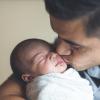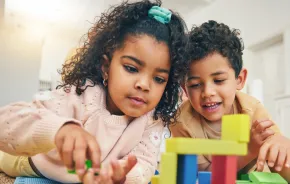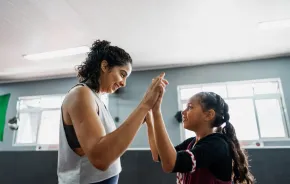
"It’s a little princess!” the ultrasound technician said excitedly. “You’re having a little girl.” My heart clenched with an emotion I didn’t quite recognize, somewhere between alarm and resignation. Had I wanted a boy?
The prospect seemed unlikely, especially for me. I’d never thought I would care much about my child’s sex. Gender disappointment had always seemed like a myth to me. It sounded like a media buzz phrase, a rarity made real only by its perpetuation in print, or like the central conflict in an uneventful episode of “Everybody Loves Raymond” — wrapped up and laughed off in 30 minutes of lukewarm dialogue.
I also knew that my baby’s sex didn’t necessarily equate to gender. Still, I felt a sort of existential dread, which grew only more real as I looked through clothes and toys intended for girls. These products so often (too often) were emblazoned with phrases like “Future Trophy Wife” and “Total Babe.” Something caught in my throat and stayed there. It was my responsibility to figure out what it was, for my daughter’s well-being and my own.
You might like these, too
We talk to sex therapist Jo Langford about how to teach boys consent and why consent is a conversation for every age.
Some soul-searching revealed that I wasn’t feeling disappointment. This was sharper, toothier; it was fear. I was scared for my daughter, of the ways she might be limited by the messages she’d be inundated with. The ways she might be contained, by others or by her own self-imposed restrictions. The ways women often fold themselves into paper-thin versions of themselves for the benefit of others.
Being a woman means many things to me, many of them positive and empowering, but it also means being afraid. It means tensing my shoulders and quickening my pace down streets at night, being a gatekeeper of the boundaries of my body — perpetually worried that they might again be transgressed.
It also has meant something more sinister: My rapist was a woman. I thought I’d long ago tucked the last of that baggage into storage, but as I reflected on having a daughter, here it was once again. I had to reconsider what sexual assault had meant to my body, and what I would tell my daughter about her own body.
“Oh, she’s so sweet!” the ultrasound tech would say at every appointment as she pressed the wand into my abdomen. Despite their harmless intentions, these words weighed me down. I was wary of “sweet” (as opposed to “strong” or “feisty” — what boys are often called, even in the womb) and I was weary of what “sweet” might mean for my daughter. “Sweet” — and all of its gendered implications, including the expectation of niceness, silence, politeness and even shame and guilt — had made me vulnerable.
As my pregnancy progressed, I realized that it wasn’t womanhood I feared. It was vulnerability and sexuality itself. Girlhood is often sexualized and “princess”-ified, imbued with traits that aren’t inherently negative but are too often twisted into victimization. How could I combat these messages, particularly given my own somewhat baggage-laden relationship to femininity?
I began to take sex positivity and education about consent much more seriously. I realized that because my rapist was female, I was in some ways both afraid of women and afraid to be one. I refuse to pass those fears — of womanhood, of intimacy — on to my daughter.
My daughter is here now and as she grows, I want her to own her sexuality and her body, to embrace pleasure of all kinds and take charge of her health and well-being. I’ll be talking to her about consent — not just sexual, but physical and psychological as well. And I won’t avoid her questions about body parts or sex. Creating taboos creates shame and silence, too.
I’d like to say that I’m no longer afraid, but I’m still working on it. What I am is dedicated. If my daughter is a princess (or a prince, or a witch, or all three), she will be one on her own terms.











